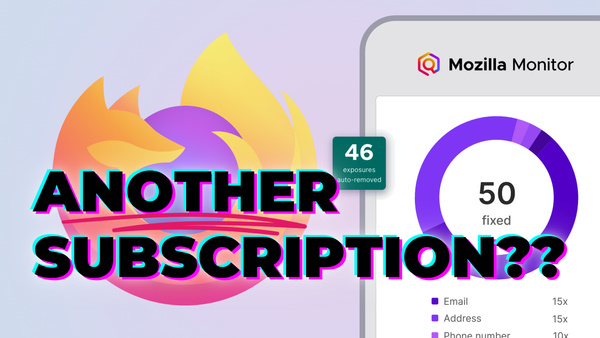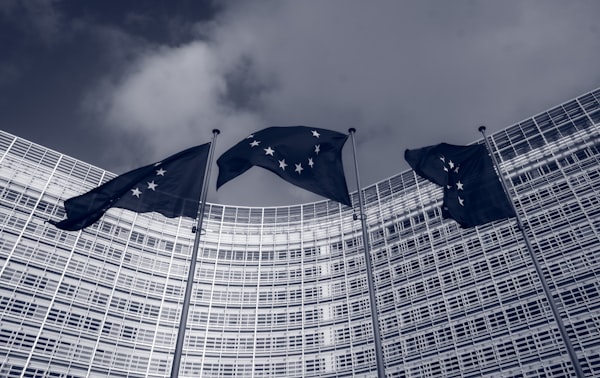The U.S. Senate is Meeting Today to Censor the Web
Privacy advocacy groups like the EFF and Fight for the Future have been warning about the Kids Online Safety Act (KOSA) since 2022 now, but it's still been working its way through Senate committees despite this, and it's never been closer to passing than now.
To share what's at stake here, KOSA is a bill which would pressure large platforms like Instagram and YouTube to wipe the internet of any content broadly deemed "inappropriate" for minors. We know that over-broad mandates like the ones in KOSA are used in places with content filtering already to block resources far outside the original scope of these bills, such as suicide prevention hotlines and other educational materials that policymakers don't approve of.
Authoritarian regimes love bills like KOSA, because they know that broad language to block content that is not "in your best interest" can be easily wielded as a tool to solidify their power by blocking resources that disagree with their political agenda, even though it's content that people would universally agree is "not dangerous." Thus it is no surprise that this bill has bipartisan support among members of both political parties, as some members of our government continue to work to eliminate privacy and free speech online, and others still seem to naively believe that the name of a bill has any relation to its content whatsoever.
In addition to this censorship mandate, KOSA would require an elaborate age-verification process for sites to follow, likely one run by a privacy-invasive third-party service along the lines of ID.me or Clear.
All of this means that KOSA will have widespread repercussions for all internet users, not just children. Even if it were to magically only affect children somehow, research has shown time and time again that putting children under surveillance and limiting their access to information makes them less safe, not more. However, as is, the requirements of this bill would almost certainly lead to increased tracking of all platform users, and platforms will lean towards over-censorship to avoid new liability risks introduced by this bill.
Big Tech Begins Endorsing KOSA
A week ago, Snapchat became the first "Big Tech" platform to publicly endorse KOSA, breaking from the NetChoice lobbying group they're a member of which has historically opposed KOSA alongside many other large tech companies.
Earlier today, Microsoft joined Snap in their endorsement of this bill, just hours before the CEOs of Snap, Discord, TikTok, Meta, and X (formerly Twitter) were summoned to the Senate Judiciary Committee to discuss child safety on their platforms.
This is especially troubling because it's transformed KOSA from the usual "we care about the children" dog and pony show that Congress typically puts on into a formidable bill which suddenly has support from major players in this space.
Censorship (Still) Doesn't Work
Of course, there is dangerous content on the internet, but content filters like the ones proposed have been shown to consistently fail at distinguishing "good" speech from "bad" speech.
The topics targeted by KOSA can be dangerous, but they're also complex, and merely discussing them is not dangerous by default. KOSA would demand that all discussions about any of these "dangerous" topics be blocked from viewing by minors entirely.
It's one of the reasons Tumblr and Instagram have had such a hard time combating eating disorder content on their platform. When Tumblr attempted to do so, they found that the keywords commonly used in pro-anorexia content were often the same as the ones used by content which discouraged anorexia, worsening the problem overall by cutting off access to those educational resources. When Instagram blocked certain hashtags related to eating disorders, it actually increased the visibility of content which promoted eating disorders by spawning hundreds of slightly misspelled hashtags to deal with (e.g. “thinspiration” became “thynsperation”), as opposed to the handful of hashtags before that users could avoid themselves.
Some lawmakers in support of KOSA have said outright that their intent is to censor educational content that has nothing to do with child safety once it is passed. Bill co-sponsor Marsha Blackburn wants to pass this bill to block resources about scientifically-backed gender affirming care, or in her words to "protect minor children from the transgender in our culture."
Stop KOSA
Censorship isn't the only problem with this bill of course, the surveillance system that will be required to enforce it is just as problematic. I've written before about age verification systems and their potential to devastate free speech on the internet. KOSA-mandated parental control systems have already been proven to have detrimental effects on child safety too. Even in the healthiest households, surveillance of children is actually bad for them, and isn't a real solution to helping kids navigate the internet.
Nobody in their right mind would argue that a parent's interest in deciding what their child can and can't view online is exactly the same whether that child is 5 or 15, but KOSA would put all children under 16 into a single bucket and demand that they all be restricted and tracked exactly the same across platforms.
It should be obvious that a bill which prohibits "harm" to children without an airtight definition of what harm is could never work. If laws worked like that, all we would need is a single law: "It's illegal to harm anyone."
The reality is that certain lawmakers look for any opportunity they can find to bypass the constitution and restrict your rights, and believe that using "children" as an excuse to do so is their best move.
If you live in the United States, you should contact your lawmaker today and demand that they oppose KOSA, and focus their efforts on creating a federal privacy law like the EU's GDPR to protect, rather than track, all internet users.


